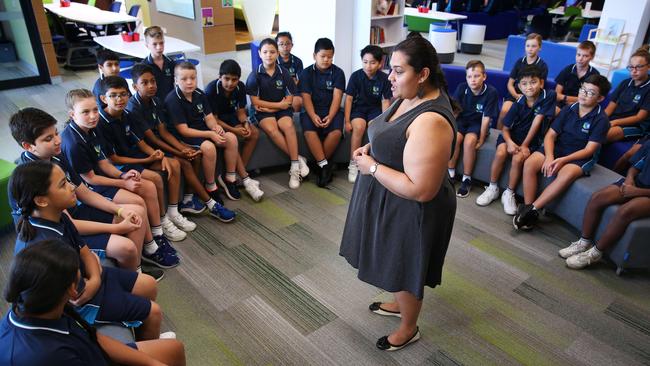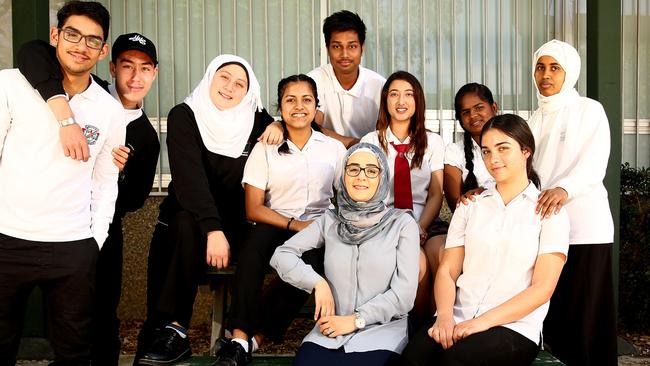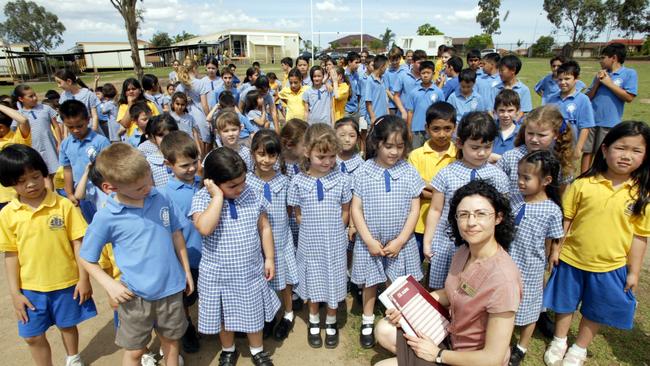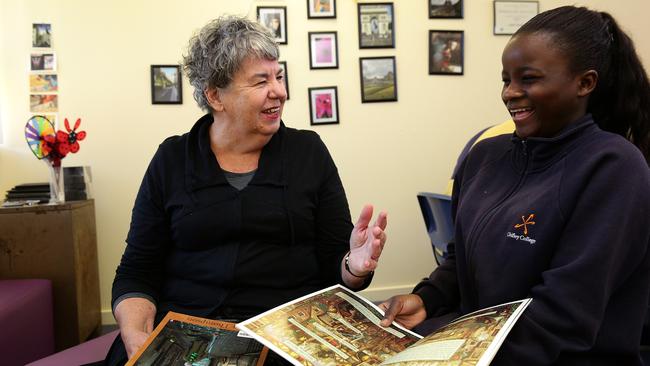Classrooms full of students who can’t speak English
An overwhelming number of students in classrooms across NSW don’t speak English, and our educators aren’t equipped to teach them how.
- Man, 31 in hospital after crawling into Chippendale petrol station before lighting a fire
- Saturday Night Fever lights up Sydney with 2.5 million LED lights
- NSW Transport unveils its Mardi Gras Float ‘Ride with Pride’ rainbow bus
An overwhelming number of students in classrooms across Sydney don’t speak English, and our educators aren’t equipped to teach them how.
NSW Ethnic Communities Council chair Marta Terracciano said teachers and schools were crying out for help.
Kindergarten teachers are being hit the worst — and are forced to work in situations where only a handful of students can speak English.
Concerned academics, university, community and teaching groups from the ethnic communities council, the Association of Teachers of English to Speakers of Other Languages (ATESOL) and the University of NSW say enough is enough.
They are calling on the NSW Government to address the failure of the system. They have compiled a report outlining ways to address the growing English language and literacy learning needs of migrant and refugee students.
The group say the number of migrant and refugee students needing English and literacy support has increased by more than 30 per cent in the last decade, but the number of specialist English language teachers has remained unchanged.

The group will be releasing a report of recommendations on Friday at NSW Parliament House.
They are calling for the restoration of 32 specialist school consultancy positions, which were axed in 2013.
They want the allocation of an additional 250 permanent English teaching positions for schools as well as departmental staffing processes that ensure trained specialist English language teachers are appointed.
They said the number of migrant and refugee students needing English and literacy support has increased by over 30 per cent in the last decade, but the number of specialist English language teachers has remained unchanged.

Speakers at the event include the NSW Ethnic Communities Council chair Marta Terracciano, ATESOL president Janet Freeman and Dr Michael Michell from the University of NSW.
Ms Freeman said the two most alarming issues to be raised on Friday include the lack of funding and the lack of skills.
She said when students can’t read, teachers are to blame.
“They don’t know how to provide the learning to meet the needs of the students in front of them,” Ms Freeman said.
“I know that when beginners come into schools, they are shocked.
“They are struggling with the differentiation.
“There are children who can speak English but can’t address the academic demands of the curriculum.”

Ms Freeman said teachers then assume the students have a learning difficulty.
This under-resourcing of specialist English language teachers has been made worse by the absence of statewide planning, the misdirection of needs-based funding, reliance on casual teachers and the erosion of targeted English language learning programs in schools.
If unsolved, Ms Freeman said we will have a generation of students with poor literacy and lanauge, failing to reach their full potential in society.
“We need to reinstate the consultancy support for schools, there were 32 and they are no longer,” she said.
“And the Department of Education to acknowledge this need, because it is being swept under the carpet as a literacy problem.
“It’s not, it’s bigger than just literacy.”
Ms Freeman said parents sending their children to school in Sydney should know their child will be supported in the best possible way.

NSW Ethnic Communities Council chair Marta Terracciano said the NSW public school system needs to be able to respond to Australia’s ongoing migration and humanitarian programs over the next decade.
“We have a duty of care to our young people,” she said.
“Teachers and schools are crying out for this support.”
A spokesman from the Department of Education said new arrival refugee students or students with English as an additional language are provided with a high-quality education and intensive support.
He said resources are provided to schools based on identified school and student needs.
“In 2019, $133.2 million has been allocated directly to schools through this loading.
“This includes over $95.6 million being spent on EAL/D teacher positions and approximately $37.5 million in flexible funding,” he said.
“$37.9 million has been allocated to schools through the New Arrivals Program to provide intensive English support to newly arrived EAL/D students.
“Eighteen Refugee Support Leaders are located in schools in areas of high refugee settlement. They work with school leaders and staff in more than 200 schools to support over 7,000 refugee students’ wellbeing and learning.”


